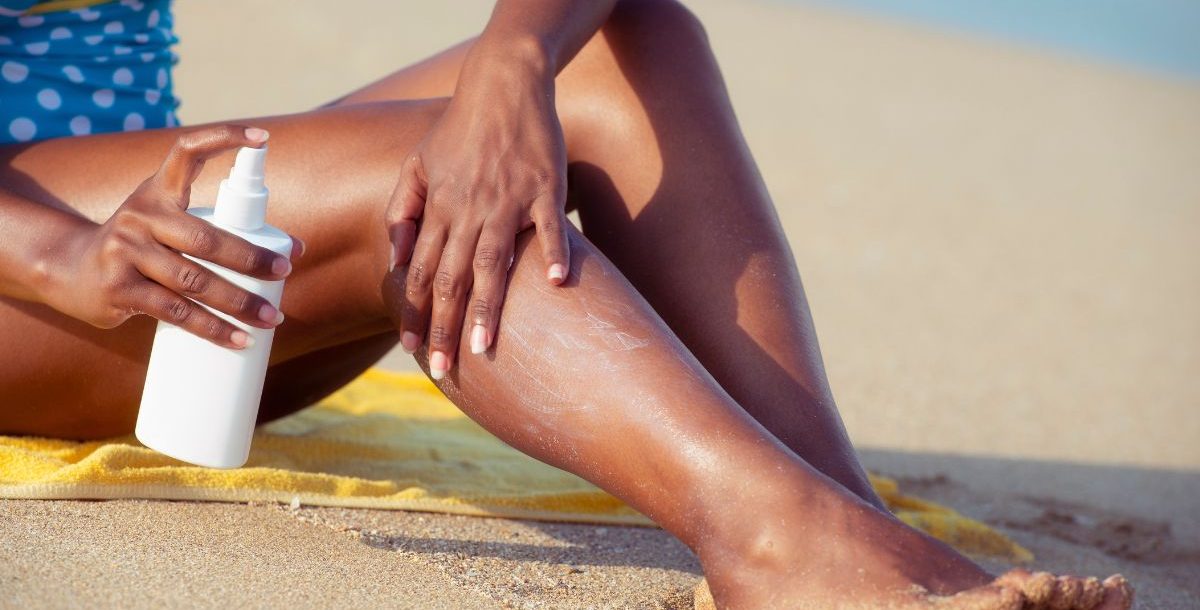Sun’s out, fun’s out, right? Well, maybe. You’re all set to get outside and enjoy the warm weather and you’re prepared – hat? Check. Drinks? Check. Sunscreen? Check. But when you glance at the label, you see a list of chemical-sounding ingredients and you wonder, is sunscreen bad for you?
With all the outdoor fun you have planned this summer, it’s important to understand how wearing sunscreen – and even applying sunscreen every day – can affect your skin.
Sun exposure is no joke. There are plenty of health risks associated with too much time in the direct sun, so using appropriate sunscreen is a great plan of defense against the sun’s harmful rays. But, like with any product you’re applying to your skin, you should understand any potential risks before using it.
Is sunscreen bad for you?
Myths and misinformation like sunscreen leading to skin cancer or its ingredients being harmful definitely exist, but they’re not true. Sunscreen is one of your best defenses against harmful sun rays, along with rash guards, hats and UV-blocking clothing.
The main ingredient that raises some concern with people is oxybenzone, which is used in some chemical sunscreens. The concern is with studies that found oxybenzone to cause hormone disruption. The problem with the study is that it was eaten by the rats used in the studies, not applied to their skin like sunscreen. It would take almost 300 years of using sunscreen on your skin to come close to the dosage they fed the rats.
Is sunscreen safe for daily use?
The short answer is yes. Sun damage on your skin happens over a lifetime, not just in the summer, on a beach vacation or trips to the pool. Applying sunscreen to any part of your skin that isn’t covered by clothing is a great daily step to up your protection. It’s important that you choose a sunscreen with a high enough SPF, or sun protection factor, to sufficiently protect you. Experts recommend that you use a sunscreen that is at least an SPF of 30.
However, if you are worried about smelling like sunscreen all day, some brands of daily lotion and other personal care products come loaded with SPF and are an easy substitute.
Is there a downside to wearing sunscreen?
Depending on the sensitivity of your skin, some sunscreens can cause mild irritation. Trying mineral sunscreen or sunscreen marketed as being for ‘sensitive skin’ will likely help any irritation issues. Sunscreen is safe and effective and should be used often to avoid sunburns and minimize your risk for developing skin cancer.
What is the safest sunscreen to use?
are concerned with the safety of sunscreen, you have plenty of options to consider to find one that fits you best:
- Chemical sunscreens: These have lots of ingredients, absorb into the skin and absorb the sun’s rays into energy that protects your skin from UV damage.
- Natural sunscreens: While not as effective, natural sunscreens provide sun protection through more organic sources. Consuming plenty of foods rich in antioxidants can give you healthier skin that is more resistant to UV rays. Additionally, some seed oils are thought to have SPF properties as well, but experts don’t recommend relying on these to filter out all UV rays. And if you have to be out in the sun, avoid the hours of 11 a.m. to 2 p.m. when the sun is strongest.
- Mineral sunscreens: Rather than converting sunlight, these contain ingredients like titanium dioxide and zinc oxide that stay on top of the skin and reflect rays away from the skin like a mirror.
No matter which type of sunscreen you choose, if you ensure they are all broad-spectrum – meaning they protect the skin from both UVA and UVB rays – they are all safe to use.
Is sunscreen more harmful than the sun?
No reputable source has found evidence that sunscreen is more harmful than not wearing sunscreen when exposed to the sun. In fact, sunscreen products are regulated by the U.S. Food and Drug Administration (FDA) and the Centers for Disease Control and Prevention (CDC) include sunscreen use among its recommendations.
Using sunscreen – or lotion with SPF – is your best bet for sun protection. The FDA is investigating the active ingredients of sunscreen to ensure their safety and effectiveness. That’s not cause for concern, however, because that’s what they’re there to do.
If you’re hoping for a summer full of fun and sun without the harmful effects of the make sure sunscreen is part of your plan!
Learn about the skin care and dermatology services we provide at Bon Secours.





